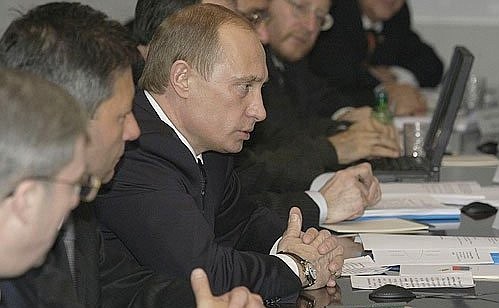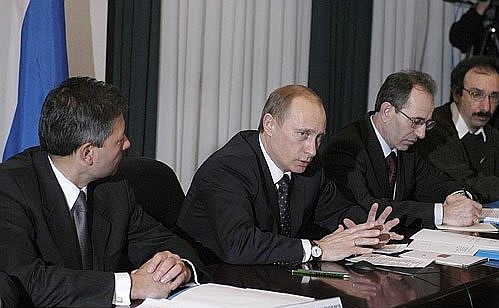Vladimir Putin noted the serious social significance of creating technology parks – new, highly paid and prestigious workplaces mainly directed towards young people.
The formation of the infrastructure of the information business must be coordinated with modernistation of professional education. A large number of highly-qualified personnel is required, who are able to solve specific highly specialised tasks. At the same time, it is necessary to maintain the fundamental nature of education and the traditions of the Russian school of training, the President stressed, opening the meeting.
At the meeting, Mr Putin said that so far the Government has not been able to achieve success in diversification of the economy, and asked members of the cabinet to increase the rates of developing draft laws on tax privileges for high technology zones. Talking to the Ministry for economic development and trade, German Gref, the President asked when his department intended to submit a draft law on special economic zones, and not receiving a clear answer, he asked for the deadline for this document to be set for 1 March 2005.
Mr Putin noted the necessity of maintaining a regressive scale for deducting a common social tax for special economic zones, and asked the ministries to develop a tax level for different types of zones. The President said that according to a preliminary agreement, the common social tax for technoparks would be established at the level of 14%.
The President also said he was in favour of creating a favourable administrative system for high technology zones. This does not mean that there should not be any control, or that the state should not make any checks – it means that it is necessary to create normal conditions for companies to function, Mr Putin stressed.

